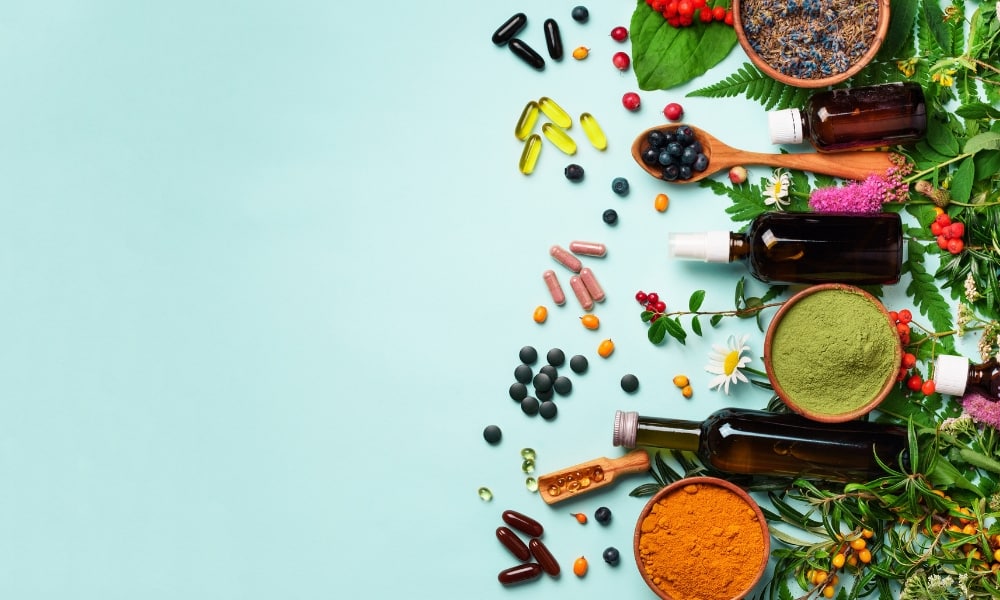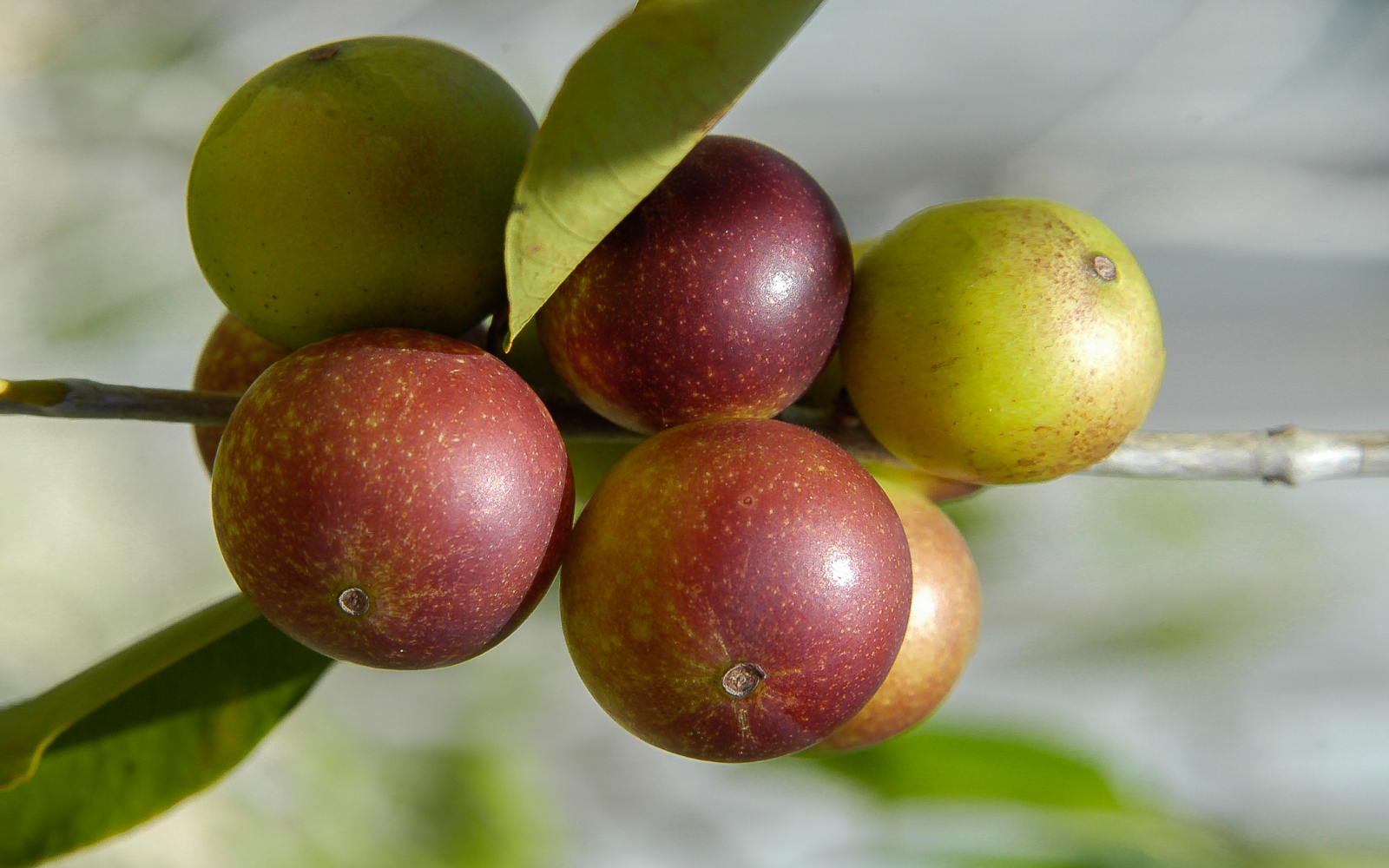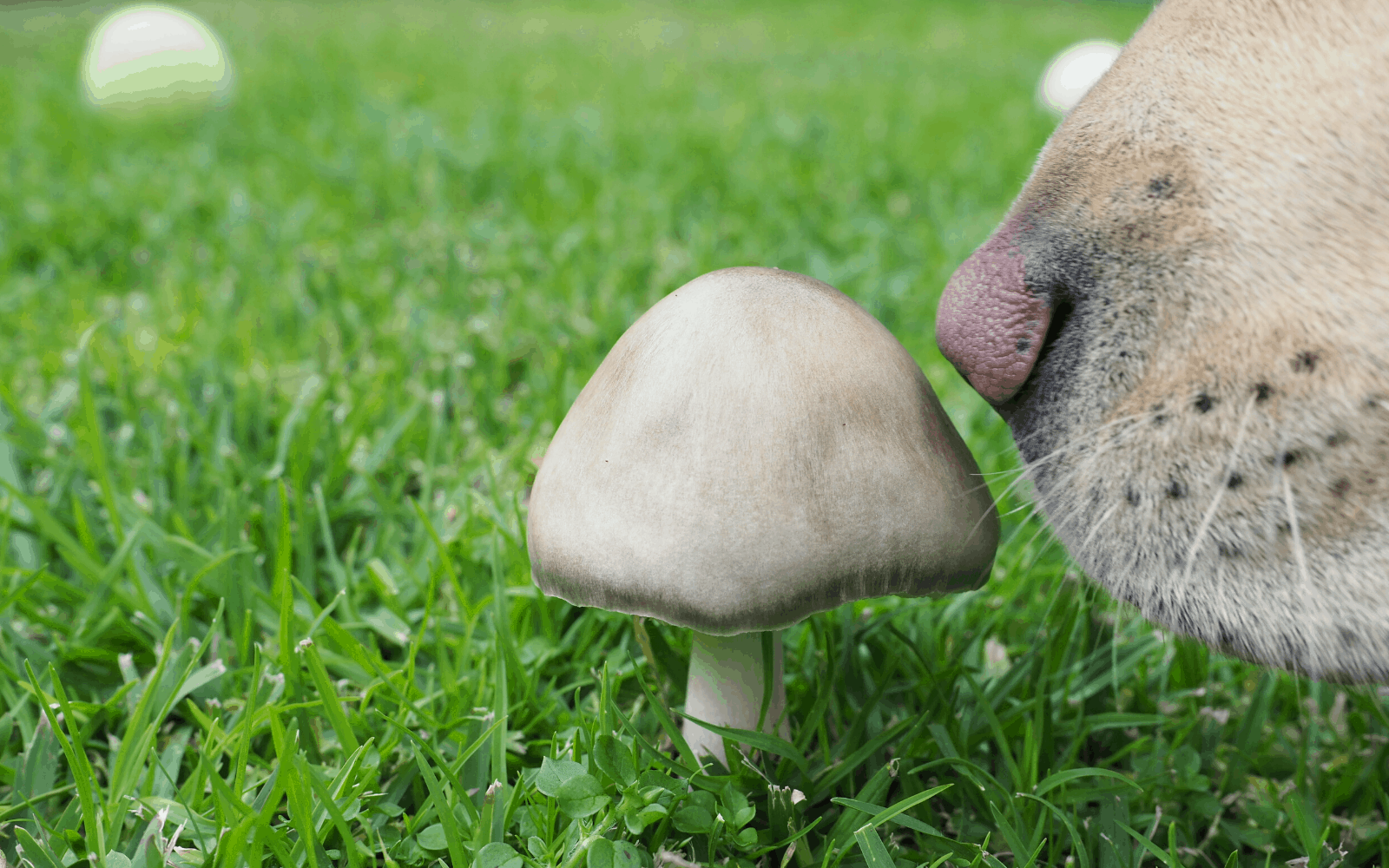If you love a morning cup of joe, you're not alone. According to the National Coffee Association's 2019 National Coffee Data Trends report, 63% of American adults drink coffee every day. Not only is coffee a beloved pastime and potent pick-me-up, but there have also been numerous studies about its purported health benefits ranging from reduced recurrence of liver cancer (1) to lowering the risk of developing diabetes (2) and increasing longevity. (3)
The Buzz On Caffeine
Despite its popularity, you might be wondering if it's time to kick the coffee habit. A naturally occurring stimulant, caffeine is classified as a drug because it stimulates the central nervous system. The average caffeine content of an 8-ounce cup of coffee is 95 mg. By comparison, a single espresso or espresso-based drink has 63 mg, and decaf coffee typically has 3mg to 7mg of caffeine. Weight, age, and genes play a role in how caffeine affects the body and the amount of caffeine in a cup of coffee varies depending on different factors including the bean type, how it's brewed, etc. While some people can drink a lot of caffeine without any adverse reactions, others might encounter side effects even with low or moderate doses. Some of the most common side effects are nervousness (aka "the jitters") as well as insomnia, digestive issues, headaches, and the inevitable energy crash. There's also ongoing debate about caffeine-induced adrenal fatigue, which is basically all of the aforementioned symptoms. While many naturopaths declare it's a legitimate health condition (4), others in the medical community decry it as a myth. (5)
Coffee Alternatives
Like smoking, snacking, or any other habit, part of the satisfaction of drinking coffee comes from the repetition and the routine. While there are legitimate physical and psychological changes that happen to the body when drinking coffee, it's also about the ritual of preparing—or simply buying—coffee and then enjoying that first sip and savoring the flavor. Many people might reach for black tea or yerba mate as an alternative to coffee, but these don't offer an alternative to caffeine itself. So what to do when you need an energy boost but don't want the post-caffeine crash? Whether you plan to quit cold turkey, just feel like taking a temporary break, or want to cut down your caffeine intake in general, it is possible to find a healthy alternative to coffee that will still increase your energy levels. Take a look at these options that just might surprise you.
1. Chicory Root
Part of the dandelion family, chicory root "herbal coffee" is not only caffeine-free, but it's also roasted, ground, and prepared just like real coffee. It also contains a high level of fiber called inulin, which can improve digestion and maintain regularity. (5) With a woody flavor that is somewhat similar to coffee, many people enjoy chicory root on its own or even mix it with regular coffee as a way to wean off the real stuff. Teeccino is a popular herbal coffee brand that uses chicory root in its flavors.
2. Coconut Water
You might not have thought of coconut water as a viable alternative to coffee—they look so different and taste so different—but it shouldn't be dismissed. Coconut water is loaded with electrolytes including potassium, which can lower blood pressure, decrease the risk of osteoporosis, and boost heart health (6). What's more, coconut water tastes so refreshingly sweet it's hard not to like it.
3. Lemon Water
An easy way to hydrate and boost energy at the same time, drinking lemon juice with warm water first thing in the morning not only provides a pucker-worthy wake-up call for your senses, but the vitamin C it contains is a powerful antioxidant that can help your immune system and improve iron absorption. (7) While it won't necessarily help with weight loss as some people claim, lemon water is a healthy habit to replace your coffee routine.
4. Wheatgrass Juice
Some might shudder to think about sucking down a shot of wheatgrass juice, but its energy-boosting properties are the reason so many folks swear by this pungent grass. Although it tastes nothing like coffee, wheatgrass provides an instant surge of alertness similar to the jolt you get from java without any post-caffeine crash. While more scientific research is needed to establish the health benefits of wheatgrass, it does have a high level of nutrients including iron, calcium, magnesium, amino acids, and chlorophyll, all of which are good for the body. (8)
5. Ginseng Tea
Used in traditional Chinese medicine for centuries as a way to restore energy, improve memory, and increase concentration, Asian ginseng is still a common ingredient in many of today's teas as well as energy drinks. The chemicals in ginseng, called ginsenosides, offer a bevy of potential health benefits but more studies are needed. (9) If you like making your own coffee, then peeling raw ginseng root and steeping it in hot water can be an effective way to replace an old habit with a new routine. Although ginseng doesn't have caffeine, it can act as a stimulant, so proceed with caution. (10)
6. Peppermint Tea
When it comes to an aromatic pick-me-up, there's nothing quite as perky as peppermint tea. Even though it doesn't have caffeine, peppermint tea has the uncanny ability to awaken the senses through its revitalizing, cooling scent alone—studies show it even helps with exercise performance. (11) Because it's an herbal tea that can be enjoyed hot or cold, peppermint tea provides a similar experience to drinking coffee. Peppermint is also antimicrobial, antiviral, and can help alleviate an upset stomach and certain types of headaches. (12)
7. Rooibos Tea
Another caffeine-free tea, rooibos—also known as red tea—offers more complex, richer flavor than many other herbal teas. It's also a great option when you don't feel like mint and want a darker, slightly fruity, and subtly sweet taste. Loaded with antioxidant-rich polyphenols and flavonoids (13), rooibos is a solid alternative to coffee that can be enjoyed hot, iced, or even as a latte or cappuccino.
8. Green Tea
While green tea does contain caffeine, it has much less caffeine than coffee or black tea, which makes it a viable low-caffeine alternative for those trying to cut back without going cold turkey. Also, green tea has the amino acid L-theanine, which has been proven to have a calming effect that balances out the stimulating effects of caffeine. (14) Another green tea option is matcha, which is made from powdered green tea leaves but it has higher caffeine content.
Natural Supplements To Boost Energy
Now that you know what to drink, here are some other energy-boosting supplements that can act long-term to naturally increase energy and reduce the need for caffeine.1. Rhodiola Rosea
Also known as arctic root or golden root, this herb comes from the mountainous regions of Europe and Asia and has long been used as a natural tonic, or adaptogen, to promote physical and mental performance. Most commonly taken as a capsule, research shows it can boost energy naturally while managing stress at the same time. (15)2. Ashwaganda
Another adaptogen that can act as a powerful natural energy booster and stress reducer, ashwaganda (also known as Indian ginseng) is a shrub native to India and North Africa. Sold as a concentrated powder or capsule, ashwaganda root extract has been shown to improve endurance in well-trained athletes (16) and reduce anxiety in adults. (17)3. Beetroot Powder
Packed with nutrients including potassium, fiber, and folate (vitamin B9), beetroot powder supports healthy blood pressure and circulation by oxygenating the body, which in turn helps boost energy. Research also illustrates beetroot's potential as an anti-inflammatory and "effective means of enhancing athletic performance." (18) However, consuming too much of the red stuff can lead to a spike in blood sugar levels, colored urine and stool, and kidney stones. (19)4. Cordyceps
These parasitic fungi are held in high regard for their enormous energy-enhancing potential. Studies have shown cordyceps offer fatigue resistance and improve energy by increasing oxygen delivery to cells. (20) During the 1992 Summer Olympics, Chinese runners proclaimed they won thanks to cordyceps. While there are no guarantees you'll become a champion athlete, taking powdered cordyceps like FreshCap’s HERO, 100% Pure Cordyceps Militaris Mushroom Extract is one way to get your energy up to speed.5. B Vitamins
Essential for energy production, B vitamins are what everyone needs—without them you can end up tired, weak, cranky, unable to concentrate, and anemic. (21) Because the body can't produce B vitamins, you must get them from food (whole grains, animal protein, legumes, almonds, and dark, leafy greens) or supplements. If you don't like swallowing pills, try a vitamin B complex or vitamin B12 spray that you can spritz under your tongue. Just make sure to do it daily since your body doesn't store B vitamins.Exercise Your Way To More Energy
If you're truly committed to kicking caffeine to the curb, then it's time to get off the couch and start moving. Exercising, especially as part of your morning routine, not only releases endorphins that make you feel good, but it also enhances cardiovascular health, which gives you greater endurance throughout the day. Even moderate exercise energizes the senses, which sets the stage for more mental focus and clarity. (22) Bottom line: Exercise doesn't cost a thing and it could be a more effective caffeine alternative than any supplement or drink.


